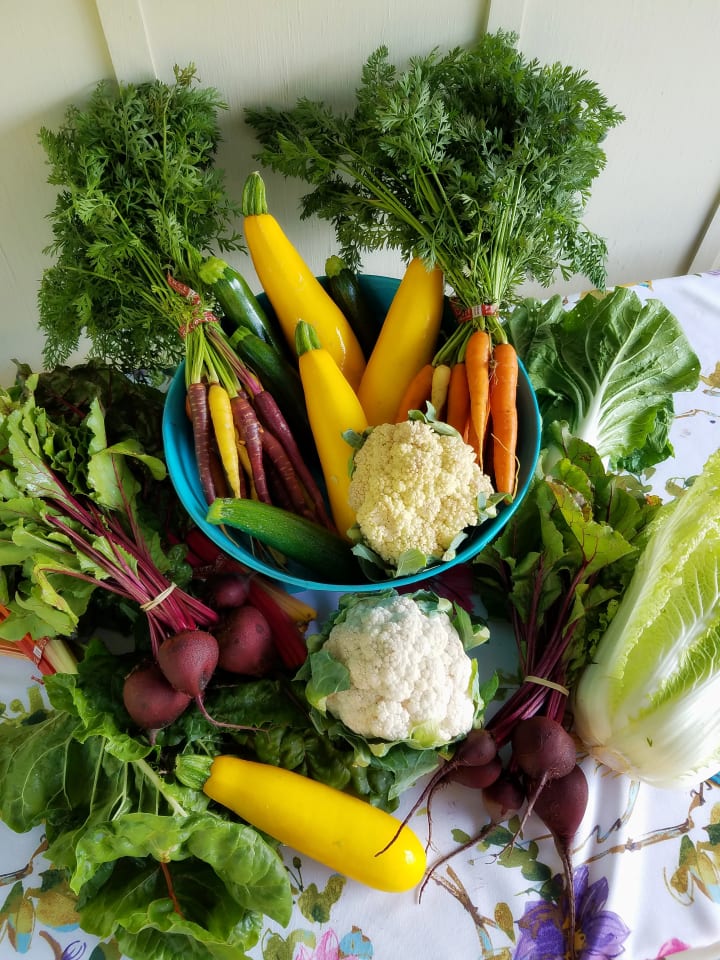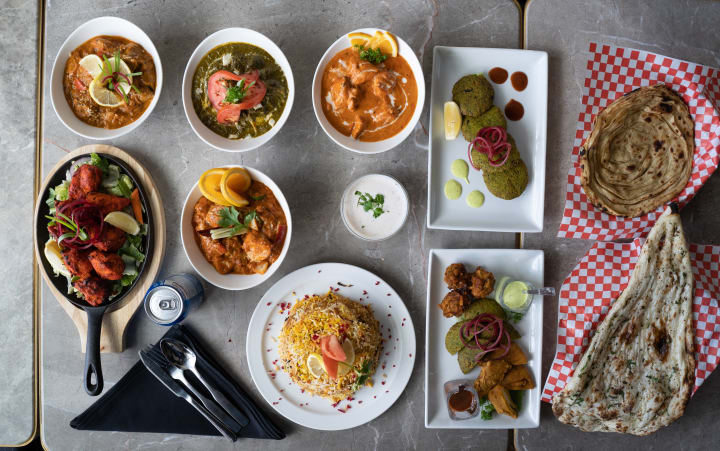The Nutritional Bounty of Indian Cuisine Unveiling the Health Benefits of Indian Food
Unlocking the Secrets of Indian Spices and Superfoods: A Pathway to Wellness

Preface :
Indian cookery isn't just a treat for the taste kids; it's also a treasure trove of health benefits. With its different range of flavors, sweet spices, and wholesome constituents, traditional Indian food offers a multitude of nutritive advantages. In this comprehensive composition, we will claw into the colorful health benefits of Indian cookery and explore the part of crucial constituents, spices, and cooking ways in promoting overall well- being. From the cornucopia of factory- grounded proteins to the Ayurvedic principles integrated into Indian cuisine, we will discover why Indian food is celebrated not only for its taste but also for its implicit to nourish and heal.
Body
Nutrient- Rich constituents in Indian Cuisine
Indian food revolves around a rich array of nutrient- thick constituents that contribute to its healthfulness. Some crucial rudiments include
Whole Grains From sweet basmati rice to fiber-rich wheat rotis( chuck ), Indian cookery incorporates a variety of whole grains that give essential nutrients, complex carbohydrates, and salutary fiber.
Legumes and beats Lentils, chickpeas, order sap, and other legumes are masses in Indian cuisine. These factory- grounded sources of protein offer a wide range of amino acids, minerals, and salutary fiber.
Fresh Vegetables Indian dishes are brimming with a various multifariousness of vegetables like spinach, eggplant, cauliflower, and okra. These veggies give an cornucopia of vitamins, minerals, antioxidants, and salutary fiber.
Fruits and Sauces Indian cookery embraces the use of fruits similar as mangoes, papayas, and pomegranates, as well as medicinal sauces like turmeric, gusto, and holy basil. These add vibrant flavors and contribute to the overall nutritive value of the dishes.

Exploring the Power of Indian Spices:
Spices play a vital part in Indian cookery, not just for their taste but also for their remedial parcels. Let's discover some famed spices and their health benefits
Turmeric This golden spice contains curcumin, a emulsion with potent anti-inflammatory and antioxidant parcels. It has been linked to bettered brain function, heart health, and implicit cancer- fighting goods.
Cumin Cumin seeds are known for their digestion- enhancing rates and are frequently used in Indian cuisine. They can help palliate indigestion, bloating, and promote nutrient immersion.
Coriander The seeds and leaves of coriander offer multiple health benefits, including abetting digestion, reducing cholesterol situations, and furnishing antioxidant protection.
gusto This sweet root is extensively used for its anti-inflammatory and digestive parcels. gusto is known to soothe nausea, palliate muscle pain, and boost the vulnerable system.
Cardamom Cardamom capsules contain essential canvases with antimicrobial parcels. They're also known to ameliorate digestion, freshen breath, and offer a comforting effect.
Fenugreek Fenugreek seeds have been associated with blood sugar control, bettered digestion, and reducing inflammation. They're generally used in Indian curries and spice composites.
Cinnamon With its sweet and warm flavor, cinnamon is a popular spice used in both savory and sweet Indian dishes. It has been linked to lower blood sugar situations, bettered heart health, and antioxidant benefits.
Ayurveda and Indian Food:
Indian cookery is deeply embedded in Ayurvedic principles, an ancient Indian holistic system of drug. The following aspects of Indian food align with Ayurvedic practices
aware Eating Ayurveda emphasizes the significance of aware eating, which involves being present and completely engaged while enjoying a mess. This practice promotes proper digestion, nutrient immersion, and overall satisfaction.
Food Combining Ayurveda recommends certain food combinations to optimize digestion and help digestive discomfort. For illustration, combining grains with legumes provides a complete protein source while abetting digestion.
cuisine styles Indian cuisine ways, similar as sautéing, stewing, and slow- cuisine, help retain the nutritive value of constituents. Traditional styles frequently use minimum oil painting, reducing gratuitous fats while conserving flavors.
Dosha Balancing Ayurveda categorizes individualities into three doshas Vata, Pitta, and Kapha. Indian cookery offers a wide range of dishes suitable for each dosha, helping to achieve balance and harmony within the body.

Health Benefits and Disease Prevention:
The consumption of healthy Indian food has been associated with multitudinous health benefits and complaint forestallment. Then are some notable advantages
Weight Management The addition of high- fiber foods, factory- grounded proteins, and spices that boost metabolism can prop in weight operation and help rotundity.
Heart Health numerous Indian spices, similar as turmeric, garlic, and cinnamon, have been linked to bettered heart health by reducing inflammation, lowering cholesterol situations, and supporting healthy blood pressure.
Diabetes Prevention The traditional Indian diet, with its emphasis on whole grains, legumes, and vegetables, has been associated with a reduced threat of type 2 diabetes. These foods promote stable blood sugar situations and insulin perceptivity.
Digestive Health Indian cookery incorporates spices and sauces that aid digestion, promote gut health, and palliate digestive issues similar as bloating and indigestion.
Anti-Inflammatory goods The combination of spices like turmeric, gusto, and garlic offers potent anti-inflammatory parcels, which can help reduce inflammation in the body and alleviate habitual conditions.
Cancer Prevention Certain spices and constituents generally used in Indian cookery, similar as turmeric, gusto, garlic, and cruciferous vegetables, contain composites that have shown implicit anti-cancer parcels.
Brain Health Indian spices like turmeric, known for its active emulsion curcumin, have been studied for their neuroprotective parcels and implicit in precluding age- related cognitive decline and neurodegenerative conditions.
Conclusion:
Indian cookery's immense fissionability extends beyond its tantalizing flavors and artistic significance. The rich array of constituents, spices, and cooking ways used in traditional Indian food contribute to its remarkable health benefits. From promoting heart health and weight operation to abetting digestion and precluding habitual conditions, Indian cookery offers a holistic approach to well- being. By embracing the nutritive bounty of Indian food and integrating Ayurvedic principles into our eating habits, we can embark on a trip towards optimal health and vibrant living. So, let's savor the tasteful delights of Indian cookery while nourishing our bodies and upping our spirits.






Comments
There are no comments for this story
Be the first to respond and start the conversation.